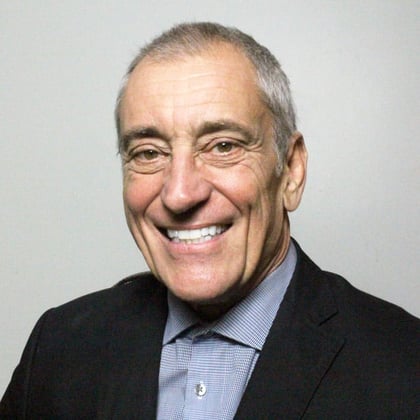Michael Norman, a major proponent of modern monetary theory, assiduously tracks the daily fiscal flows into and out of the U.S. Treasury.
“It’s almost like having a kind of insider information,” the former 10-year contributor to Fox News tells ThinkAdvisor in an interview.
The government publicly publishes Treasury’s cash and debt operations online.
Norman, founder of the weekly MMT Trader report, argues that MMT, which holds that a swelling U.S. deficit is no problem since the country prints its own money to fulfill pressing national needs, is a help to investors.
It gives them “a correct understanding of basic conditions in the economy,” he says.
Critics, on the other hand, call it “socialist” or “communist,” and argue that it can lead to hyperinflation, Norman notes in the interview.
Those who dismiss MMT include Federal Reserve Chairman Jerome Powell, Warren Buffett, Larry Fink, BlackRock chairman and CEO; and Jeffrey Gundlach, CEO of DoubleLine Capital.
Norman argues that there’s a “shadow” or “clandestine” reason MMT is disliked: “Big money interests, large corporations and the very, very wealthy” want to keep the prevailing system exactly as it is because changing it “isn’t going to benefit them.”
Norman is CEO of the forecasting firm Mike Norman Economics, and his Pitbull Economics offers online MMT-based courses on trading. He is also the host of The MMT Podcast.
The economist, with a master’s degree in economics from the University of California, Los Angeles, started out in sales at Merrill Lynch in 1979.
After that, he was a floor trader on four different exchanges and managed assets in a large hedge fund.
As for MMT, it can help financial advisors help their clients because, Norman says in the interview, “advisors are just throwing darts at a dartboard. They don’t have a correct understanding of basic conditions in the economy.”
His current forecasts for the stock and bond markets are bullish. In the interview, he names equity sectors he likes, as well as reveals just what would prompt him to “take all [his] money out of the market or even sell short.”
ThinkAdvisor interviewed Norman on Nov. 18. He was speaking by phone from his New York City base.
About current inflation, the MMT expert says: “I call the inflation transitory. The supply chain disruption is starting to loosen up.”
That, he says, is a prelude to the end of now-rising inflation.
Here are highlights of our interview:
THINKADVISOR: What’s your reaction to Chairman Jerome Powell’s signaling on Tuesday that the Federal Reserve might end its bond-buying program earlier than expected?
MICHAEL NORMAN: The Fed ending its assets purchases early, from an MMT standpoint, is bullish. That’s because it leaves interest-earning securities in the economy, allowing the economy to earn that interest, rather than the Fed.
It will have little bearing on economic activity, or better yet, will be a positive development.
What’s the crux of the modern monetary theory concept?
It makes the distinction between countries that are currency issuers, like the U.S., Great Britain, Japan, Canada and Australia, and countries that are currency users, like the countries in Europe that have given up their sovereign currency for the euro.
What does MMT say about the U.S. economic stimulus?
The stimulus is the understanding that the government can spend what it needs to spend whatever its priorities are.
If you need to give people supplementary unemployment checks or you need to expand Medicare or have Medicare for all, it’s not a financial issue. It’s an issue of resources.
What makes MMT so controversial?
There are two reasons. No. 1 is an open reason; and then there’s a shadow, or clandestine, reason.
The open reason is that people believe that if the government spends money, it will lead to inflation or hyperinflation. That’s a straw man argument!
The second reason is that the powers that be, those that control policy — big money interests, large corporations, the very, very wealthy — don’t need to change the system.
The system functions fine for them with unprecedented wealth and income inequality. Changing the system isn’t going to benefit them, so they have no interest in MMT.
Are there myths around MMT?
The main criticism is, “It just means we can print money, and we’re going to be like Weimar, Germany, or Zimbabwe.”
But many seem to hate MMT, don’t they?
People who argue against MMT might call it socialism. They might call it communism — crazy stuff like that. That’s one of the fallacies and narrow thinking.
The U.S. federal government isn’t limited in its ability to create its currency and to pay for whatever it needs in its own currency.
What do the detractors say?
If the government makes all the spending decisions, then government is involved in the economy — and that’s basically socialism.
But MMT is not socialism, because the private economy is still providing the goods and services. It’s just the government’s spending ability to make a national investment to maintain our standard of living.
And that doesn’t equate with socialism. The government is the one that’s spending; the private sector is delivering the goods and services.
What are your thoughts about rising inflation?
I call this inflation transitory. A lot of industrial companies were able to price higher. Somebody had to set a price higher.









 December 02, 2021 at 05:33 PM
December 02, 2021 at 05:33 PM











